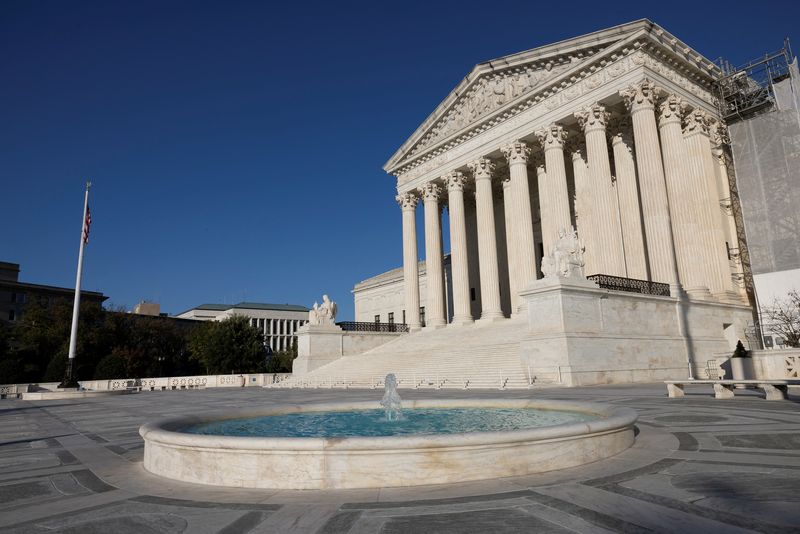By Tom Hals
(Reuters) -The U.S. Supreme Court allowed on Monday a thoroughbred racing body to continue regulating horse tracks in the United States while litigation brought by the state of Texas and other plaintiffs challenging its power to enforce its rules plays out.
The justices granted the Horseracing Integrity and Safety Authority's request to put on hold a lower court's ruling that found that its enforcement powers violated a legal principle stating that Congress cannot grant governmental power to private groups.
The private self-regulatory body headquartered in Lexington, Kentucky was empowered under legislation passed by Congress in 2020 to oversee the nation's thoroughbred industry and is overseen by the U.S. Federal Trade Commission. The body also has formally appealed the lower court's decision to the Supreme Court.
The case has attracted attention for its potential to affect similar entities used to police broker-dealers and auditors of publicly traded U.S. companies.
The horse-racing authority replaced a patchwork of state-level regulators that critics said failed to prevent doping scandals and horse deaths. The authority has said that thoroughbred fatalities have steadily declined since it implemented its antidoping program in 2023.
Texas and several other states and industry groups challenged the authority, arguing that its enforcement powers violated the U.S. Constitution by granting regulatory power to a private body with insufficient government oversight. The challengers argued that such an arrangement violated a legal principle called the private nondelegation doctrine that says that Congress cannot hand governmental power to private groups.
The Horseracing Integrity and Safety Authority was modeled on private self-regulatory bodies such as the Financial Industry Regulatory Authority, or FINRA, that oversees broker-dealers. Courts have upheld FINRA because the U.S. Securities and Exchange Commission has the final say on FINRA's proposed rules and enforcement actions.

While two other federal appeals courts rejected challenges to the horse-racing authority, the New Orleans-based 5th U.S. Circuit Court of Appeals in July ruled that the organization's enforcement powers were unconstitutional because of weak oversight by the Federal Trade Commission.
Conservative groups such as the Pacific Legal Foundation have supported challenges to the horse-racing authority.